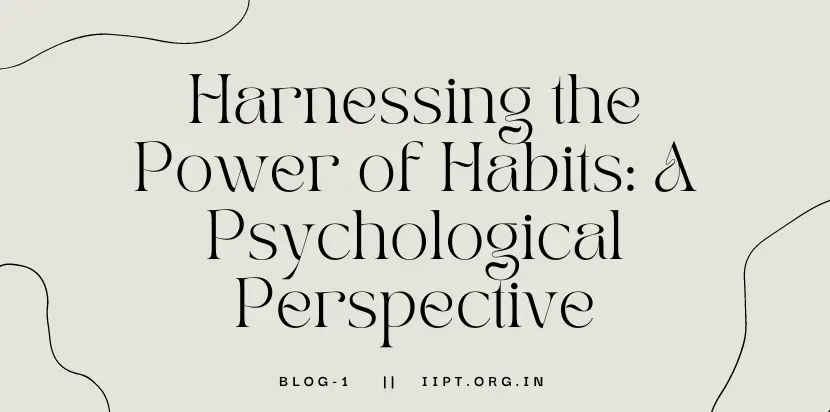Habits are the invisible architecture of our daily lives, shaping our actions, decisions, and ultimately, our success. Psychologically, habits are automatic behaviors triggered by contextual cues, allowing our brains to conserve energy for more complex tasks. Understanding the psychology behind habits can empower us to cultivate positive changes and eliminate detrimental ones.
The formation of habits can be explained through the lens of behavioral psychology, particularly the habit loop: cue, routine, and reward. A cue triggers a routine, which leads to a reward. Over time, the brain starts associating the cue with the reward, reinforcing the routine. For example, a common habit like drinking coffee every morning starts with the cue; waking up, followed by the routine; brewing and drinking coffee, and culminates in the reward; feeling awake and alert.
Let’s consider a workplace example to illustrate this. Imagine an employee who struggles with productivity. By understanding the habit loop, he/she can identify their cues, e.g., checking the phone as soon as they sit at the desk, routines, e.g., browsing social media, and rewards, e.g., temporary distraction. To boost her/his productivity, they could replace the unproductive routine with a more beneficial one, such as reviewing her/his to-do list or tackling a quick, easy task to build momentum for the day. The reward remains the same—satisfaction and a sense of achievement—but the new routine aligns better with their goals.
Psychological research also highlights the significance of small, incremental changes in habit formation. This concept, known as “microhabits,” suggests that breaking down a desired habit into tiny, manageable steps increases the likelihood of long-term adherence.
Changing your behavior for good involves:
• Deciding the type of person you want to be
• Proving it to yourself with small wins
• Believing new things about yourself
• Building identity-based habits
For instance, if a person wants to incorporate exercise into their daily routine, starting with just five minutes of stretching each morning can gradually evolve into a full workout habit.
Incorporating the psychology of habits into our personal and professional lives offers a strategic advantage. By analyzing our behavior patterns and consciously modifying them, we can foster habits that enhance productivity, well-being, and overall success. As Aristotle famously said, “We are what we repeatedly do. Excellence, then, is not an act, but a habit.” By leveraging the power of habits through a psychological framework, we can transform our actions and achieve lasting positive change.
